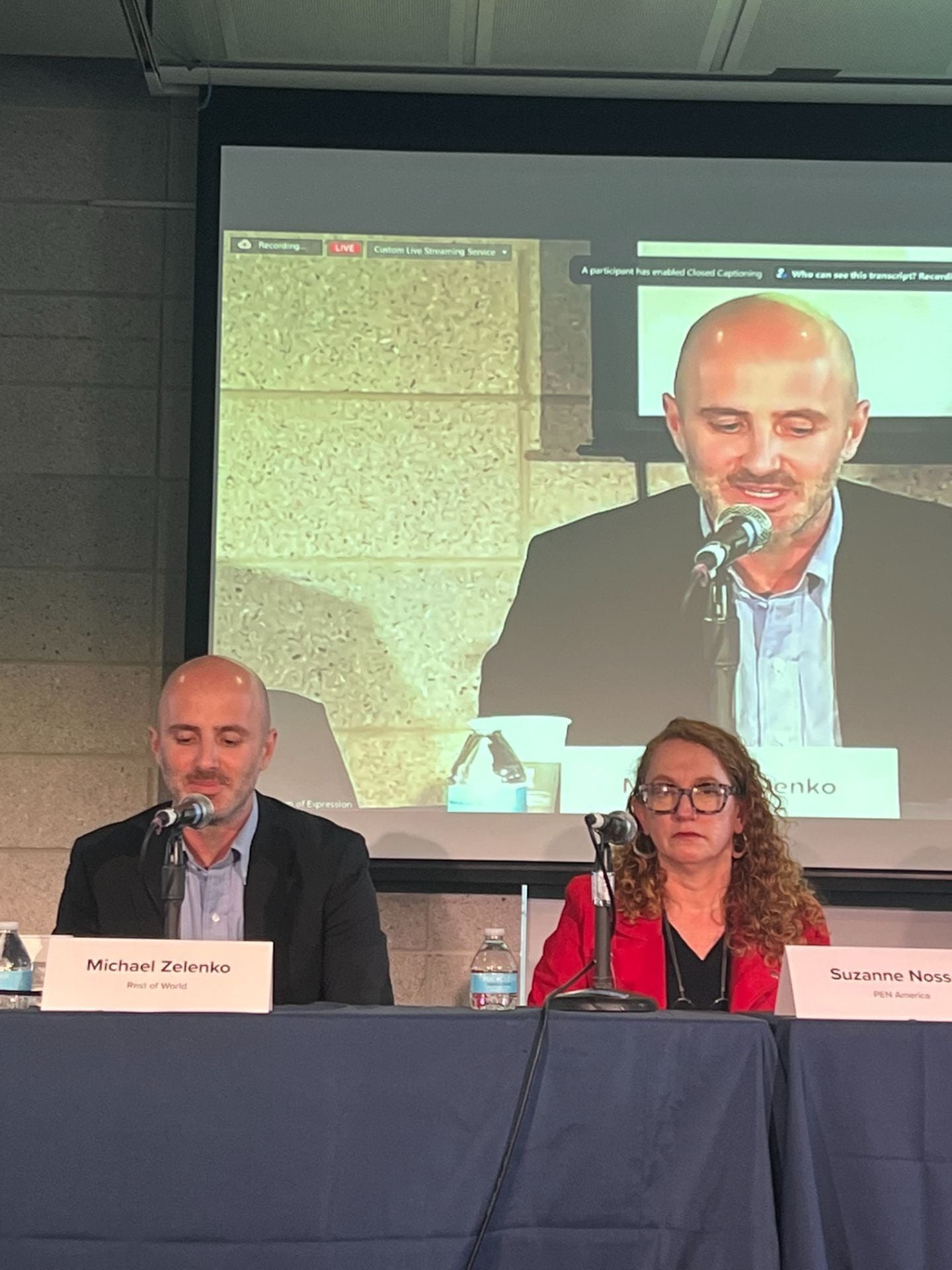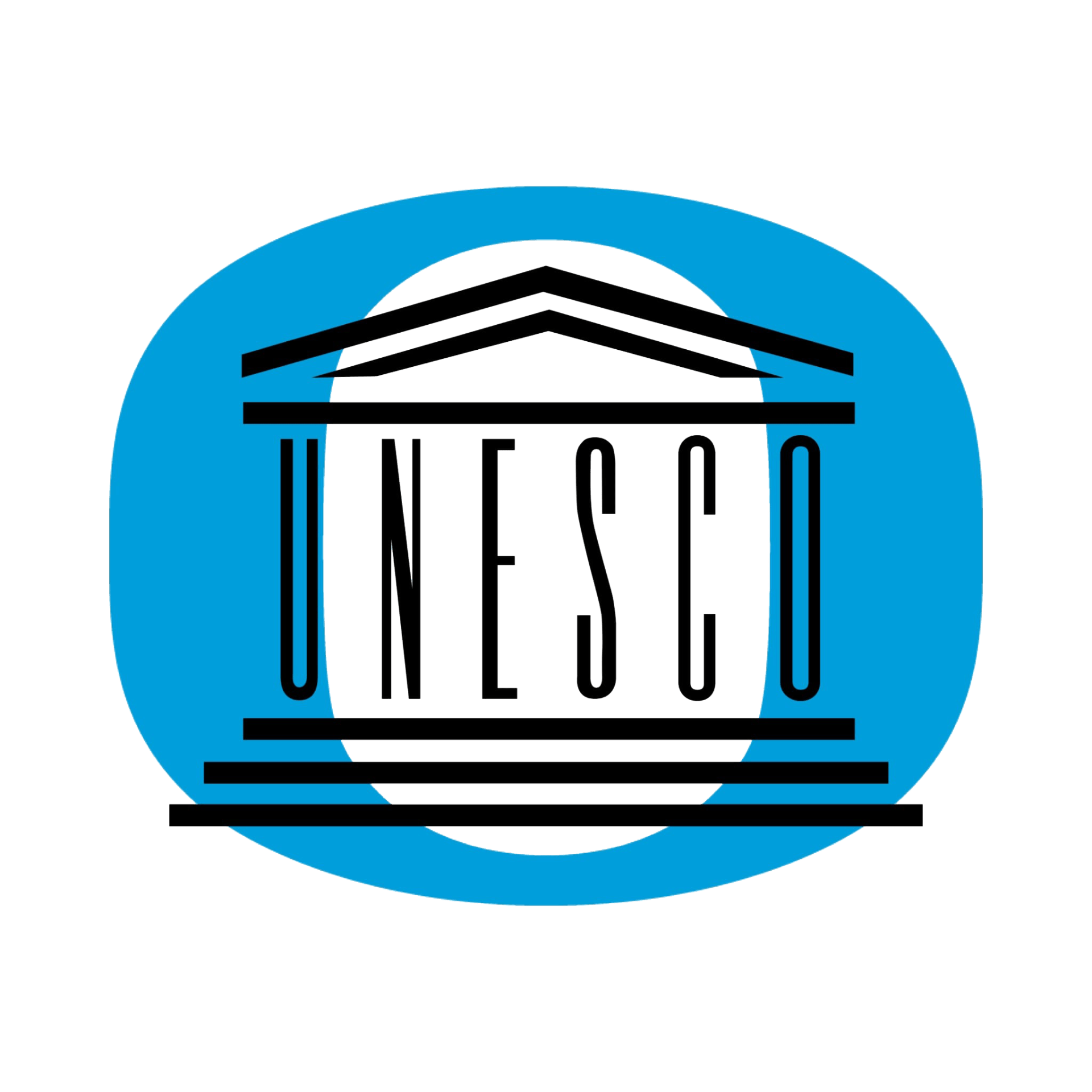Journalists must work in tandem with tech media stakeholders.

NEW YORK – “I would love to have actually seen someone from Facebook on this panel,” said Michael Zelenko, deputy Editor of Rest of World, an award-winning nonprofit newsroom dedicated to covering the impact of technology outside the West. “Ultimately we’re all standing in a room with the lights off, touching different parts of the elephant.”
Stakeholders shared their concerns over the lack of reliable information and factual journalism. Consequent to a deep public distrust in modern journalists and diminishing democracies, reporters are consistently targeted, in many cases endangering their work and life.
As part of UNESCO’s 30th annual World Free Press Day, Columbia University’s Global Freedom of Expression research collective hosted a discussion featuring panelists from Meta Oversight Board and PEN America on content moderation, ethical journalism and free speech in early May.
The lecture explored alternative approaches to uplifting the fundamental values of journalistic integrity and ethics on platforms.
“It’s hard to find someone who isn’t worried about that,” said Professor Ivor Shapiro, Emeritus Professor of the School of Journalism at Toronto Metropolitan University. “Are we going to get upset about the definitions of journalists? Or are we going to say, ‘So how do we find a way to hold journalists accountable for the factuality of information and the effort it takes to get factual information?’”
Shapiro spoke on the underwhelming statements made by Meta representatives at the event, including his personal hero, Editor of Prospect Magazine, Chair of the Reuters Institute for the Study of Journalism and member of Meta’s Oversight Board, Alan Rusbridger.
“What you do with your money is your business,” said Shapiro, “but when I hear my hero, Alan Rusbridge, say ‘It’s really expensive, it’s not feasible, you couldn’t possibly imagine,’ I simply think, wait a minute we’re talking about META not being able to afford this? How do you get away with that?”
Shapiro believes that publishers should be challenged about their commitment to their primary social role.
“It is difficult to preach your right as a social good, and at the same time say that your right to say that you will be entirely autonomous over what happens in your news organizations,” Shapiro said.
Shapiro commented on the hypocrisy of newspapers attempting to balance their role as a “social good” while also autonomous and profiting industry
Meanwhile, Shapiro noted that America’s relationship with freedom of expression is unique.
“Freedom is conceptualized in this country as freedom from interference, as opposed to freedom for looking over the freedom and rights of my fellow citizens.”
Shapiro fears that the impact of artificial intelligence presents a global threat to journalism’s value and intent as a social good. Moreover, Shapiro highlighted the alarming rise in attacks on independent journalists worldwide as a symptom of the greater crisis that lies ahead: the destruction of democracies.
“There are hundreds of journalists who are detained, imprisoned for their work,” said Frane Mareovic, Executive Director of the International Press Institute. “Many countries are trying to regulate social media by bringing out laws that are controlling what is the truth and this becomes extremely dangerous because when governments are deciding what is the truth that’s not democracy.”
The speakers all presented a somber statistic: journalists around the world are being systematically persecuted and attacked by government, legislation, and trolls, rogue actors and misinformation campaigns. Female journalists in particular suffered the brunt of these statistics as more than half reported some form of online abuse related to their profession, often directly threatening their personal life.
Speakers and journalists agreed that in order to restore the authority and respect of journalists in the public’s eye, funding and collaboration amongst media tech companies and newsrooms is a fundamental component.
Media tech companies and newsrooms must collaborate, speakers and journalists agreed, in the funding and collaboration of alternative forms of journalism.
“Online threats have made the job of journalists today much more difficult and much more complicated,” said Mareovic. “World Press Freedom Day is an opportunity to reflect and highlight to our societies why we need journalists.”

